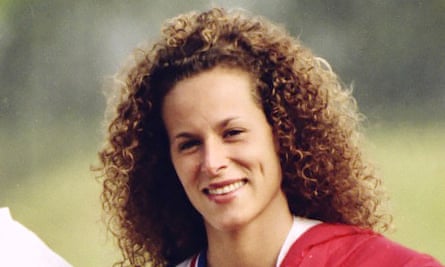“I kept all my files down in my basement, in a waterproof box. I thought, you never know – the scandal might bubble up again.”
Nicki Weisensee Egan is explaining how she came to spend 15 years delving into the most shocking fall from grace of any 21st-century celebrity – and what she did when the case went dark. As a reporter at the Philadelphia Daily News in 2005, she was the first US journalist to delve into sexual-abuse allegations against Bill Cosby, the once-feted entertainer who is now a known, prolific rapist. When Cosby wriggled out of multiple allegations in 2006 with an out-of-court settlement, Egan held out hope that he might one day be brought to justice. Then, in 2014, a video of the comedian Hannibal Buress accusing Cosby went viral and things were quickly reignited. Today, Cosby is behind bars, having been sentenced to between three and 10 years in prison in 2018 and – having written a book about the case – Egan is reflecting further in a new podcast, Chasing Cosby.
Early in its first episode, the journalist alights on a disturbing detail about the man once known as “America’s Dad”: “There was never a hint, not even a whisper that he wasn’t who he seemed to be … but that Spanish Fly routine was there, hiding in plain sight.” Years before, the Cosby Show patriarch had joked on stage about slipping an “aphrodisiac” into women’s drinks, while audiences guffawed. Little did they know that he would later be found guilty of drugging and abusing multiple women.
It is the sort of prophetic detail some might sensationalise – an audacious breadcrumb dropped by a predator. Yet Egan sounds grave and measured as she explains his “double life” and the grooming techniques he used against young, vulnerable women. (“He wasn’t going after people like Phylicia Rashad [who played his wife on the Cosby Show],” she later explains. “It was young, inexperienced women, people who wouldn’t be believed should they dare to come forward … people don’t realise that a lot of Cosby’s victims were teenagers.”) Crucially, her series interweaves the first-person accounts of the women who spoke out, among them Andrea Constand – a star basketball player who believed Cosby to be a mentor – and Tamara Green, a lawyer who came forward to back up Constand’s testimony with her own similarly grim story of being drugged with what she believed to be cold medication.
Egan puts the Cosby accusers front and centre, and they read their names out in the opening episode before they share their stories. There is a universality about hearing these women’s voices without seeing their faces that gives it a certain resonance. Egan tends to agree. “I think [the format] is better for listeners because they can just listen to their stories instead of focusing on ‘What does her hair look like? What did she say?’ You know how nasty people get when you go on TV.” Although they did make a powerful video trailer, her subjects felt more comfortable off camera. “It’s hard for them to relive that trauma, over and over again.”

Perhaps due to this combination of power and the agency it affords to victims, podcasting appears to be attracting more #MeToo-themed tales than ever. Late last year, Ronan Farrow launched the Catch and Kill podcast, elaborating on his part in the Weinstein scandal and interviewing those with claims against the Hollywood mogul. Earlier this month, the New York Times launched a new strand of its news podcast, The Daily, dedicated to the proceedings against Weinstein; in its first episode, we find out why, out of numerous possible complainants, the case ended up focusing on only two. Several shows have already aimed to untangle the story of Jeffrey Epstein, since the sex offender’s death. The trend has extended to fiction, too. In December, Wondery – the company behind hit podcasts including Dirty John – released Blood Ties, a scripted thriller that follows two siblings wrestling with ethical dilemmas when posthumous rape allegations are made against their millionaire father. And Canada’s CBC is set to air a new show in February, Asking For It, which promises “artful, poetic storytelling about a queer relationship in the shadow of power, control and violence.”
Podcasting, Egan stresses, is a “very powerful medium” for exploring these kinds of cases. “These accusers had really been thrown under the bus – Cosby and his people were calling them liars – so it’s important to hear from them directly,” says Egan. “You can hear the pain in their voices, the emotion.” Indeed, when speaking truth to power, sometimes actually speaking is the hardest part.
Chasing Cosby is available on Spotify and Apple Podcasts
